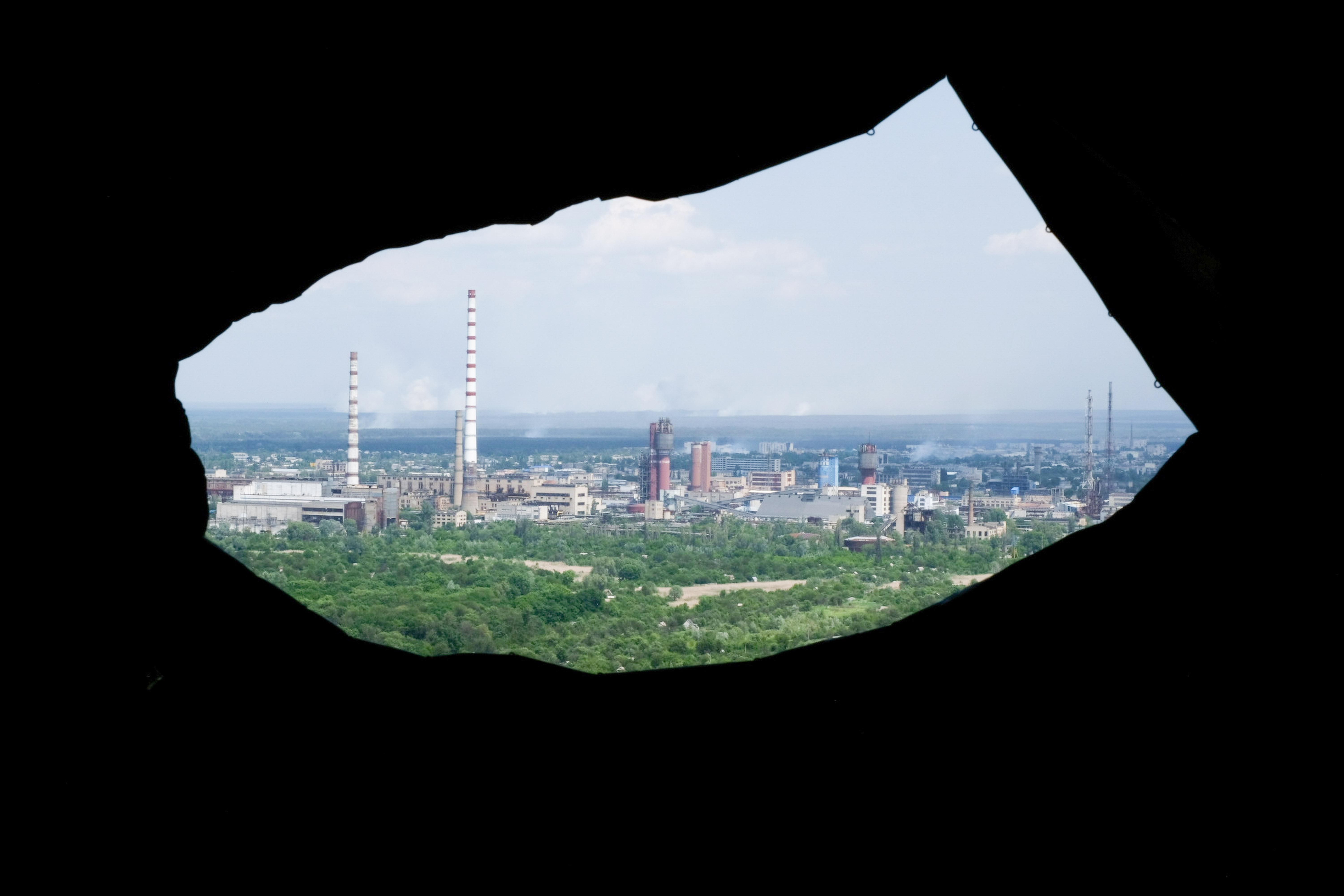What We’re Watching: Russian progress in Ukraine, gun ban plans in Canada, DRC-Rwanda tensions
Ukraine update: Is the war really shifting?
In recent days, Russian forces have made incremental gains in the Donbas. Vladimir Putin’s military now controls most of Luhansk province, and they are close to taking the strategic city of Severodonetsk, which would open the way to a wider Russian occupation of Donetsk province. Russia has shifted strategy in recent weeks, withdrawing from areas it couldn’t hold around Kyiv and Kharkiv to focus on more limited objectives in the East and South. Some military analysts warn that Russia’s recent gains are still coming at a very high cost in terms of human losses and morale. But even these slight shifts in the winds of war have raised fresh questions in the EU and US about what comes next. Driving Russia out of the east and south does not seem immediately possible. And although Washington continues to send Ukraine advanced weapons, US President Joe Biden on Monday said he would exclude rockets that could strike into Russian territory. After more than three months of war, the Ukrainians are still fighting like hell to defend their country and their democracy, but it’s no clearer yet what a reasonably achievable endgame looks like for Ukraine, for its Western backers, or for Moscow.
Canada’s Trudeau goes after guns
Another mass shooting that killed US schoolchildren in Texas has provided Canada’s Justin Trudeau with a big political opportunity to propose new gun laws. The prime minister has promised stricter gun control, and his government has proposed a ban on the purchase, sale, transfer, or importation of handguns in hopes of freezing the number of personally owned handguns across Canada. Trudeau’s interest in tougher gun laws isn’t new; his government had expanded background checks for firearm purchases and proposed a ban on assault weapons before the latest US shootings. But Ottawa will also have to continue to increase funding for security at the US border to keep smugglers from expanding the black market for weapons and ammunition. Republicans will continue to block tougher gun rules in the United States, but in Canada there are enough votes from Trudeau’s Liberals and the leftist opposition New Democrats to ensure this latest handgun proposal becomes law later this year. How effective will it be in reducing gun violence? It will be years before that question can be answered.
Tensions rising between DRC and Rwanda
The Rwandan genocide ended in 1994, but its ripple effects continue today in the neighboring Democratic Republic of Congo. On Monday, hundreds of people took to the streets of the DRC’s capital, Kinshasa, to call out Rwanda for allegedly supporting the notorious M23 rebels. (This armed group is made up of ethnic Tutsis who fled Hutu massacres in Rwanda some 28 years ago, and is currently staging its largest offensive in almost a decade.) The protesters want to kick out the Rwandan ambassador following a recent uptick in M23 violence in the eastern DRC, which has suffered near-constant conflict since Rwandan forces began crossing the border to go after escaped Hutu génocidaires. Rwanda, for its part, denies backing the M23 and on Saturday accused the DRC of being behind the kidnapping of two Rwandan soldiers by the FDLR, an anti-Rwanda Hutu armed group that operates inside the DRC and opposes the M23. If this all was not complicated enough, Ugandan forces recently entered the same region on a joint mission with the Congolese military to fight the Allied Democratic Forces, a jihadist outfit blamed for a string of attacks on civilians. We'll keep an eye on how this very messy situation plays out.
This comes to you from the Signal newsletter team of GZERO Media. Subscribe for your free daily Signal today.
